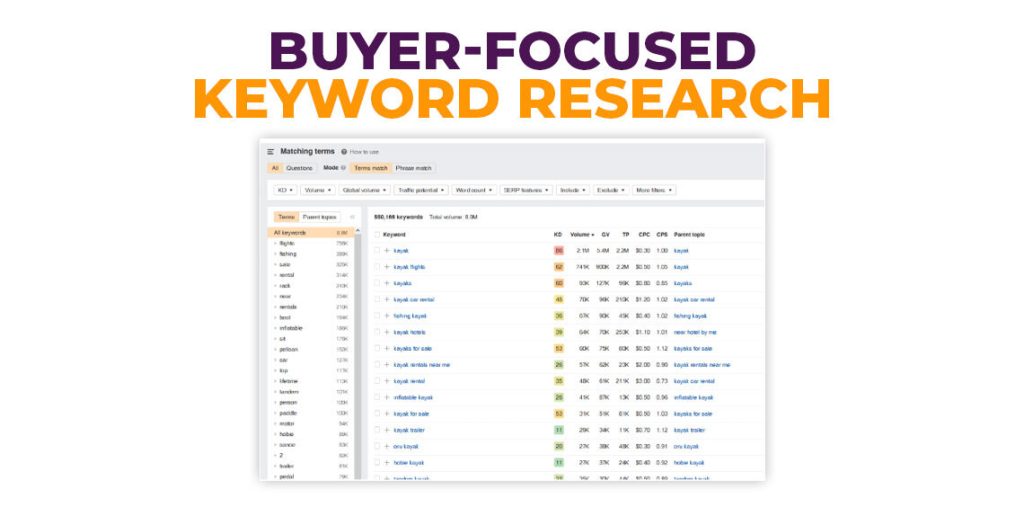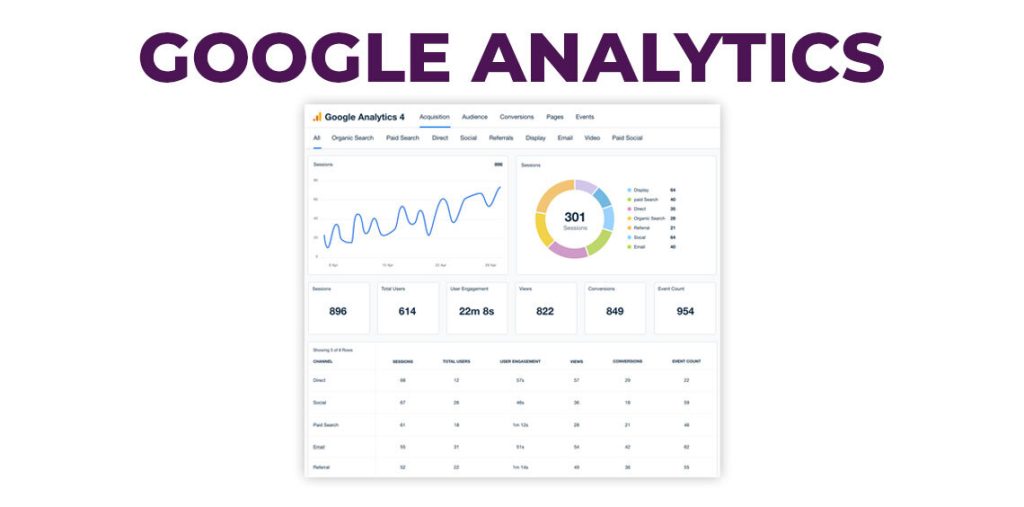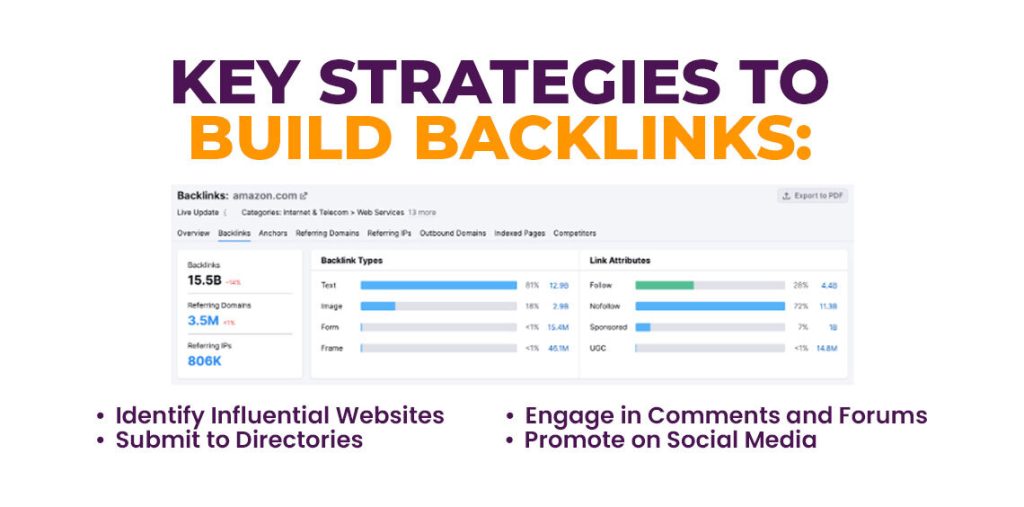Did you know Google updates its search results around 13 times daily, from changing its rankings to the search interface? Or that keeping visitors on your website just 3 seconds longer can boost your Google rankings? Competing with well-established brands in search engine rankings is one of the biggest challenges small businesses face today.
Small businesses are frequently overshadowed by larger competitors who dominate Google’s first page due to limited budgets, fewer resources, and lower brand authority. It can feel like no matter how much effort you put into SEO, you’re stuck at the bottom of the search results, missing out on valuable traffic and leads.
However, by implementing effective SEO strategies, small businesses can level the playing field and increase their chances of ranking higher on Google. But here’s the truth: SEO isn’t just about big budgets—it’s about being smart, strategic, and adaptable.
Through using local SEO, creating high-value content, and targeting untapped keywords, small businesses have a real chance to stand out. In this blog, we’ll explore proven, actionable strategies to help small businesses compete and thrive in 2025.
Table of Contents
ToggleKey Takeaways:
If you’re short on time, here’s a complete summary of what we will be covering in this blog in details and examples:
- SEO is Crucial: A solid SEO strategy is essential for small businesses to compete with larger competitors and attract customers.
- Competitor Analysis: Understanding your competitors helps you find gaps and improve your SEO strategy.
- Focus on Buyer Keywords: Target long-tail and localized keywords to reach an audience ready to make a purchase.
- Optimize Google My Business: A complete and optimized GMB profile enhances local visibility and credibility.
- Create Quality Content: High-value content that addresses customer needs helps you rank higher and build trust.
- Monitor & Adjust Regularly: Track your performance and make data-driven adjustments to improve SEO results.
- Prioritize Local SEO: If you’re targeting a specific region, optimizing for local search is key to gaining more customers.
- Niche Down: Focus on a specific niche to reduce competition and become an authority in your field.
- Build Quality Backlinks: Earning backlinks from authoritative websites boosts your site’s authority and search ranking.
These simple steps can help small businesses outsmart their competition and boost visibility in Google search results.
Why Your Small Business Needs a Strong SEO Strategy
In today’s digital age, having a winning SEO strategy is no longer optional—it’s essential. Picture this: you’re searching for a local service or product online. Over 75% of users never look past the first page of Google search results. If your business isn’t there, you’re essentially invisible to most potential customers actively searching for your products or services.
Poor SEO doesn’t just mean fewer clicks—it impacts your sales directly. Competitors ranking higher are intercepting your customers at the most crucial moment: when they’re ready to make a purchase.
Every day your website lags in rankings is a day of lost leads, sales, and growth opportunities. The longer you wait to act, the more ground you lose.
8 Ways Small Businesses Outrank Competitors on Google in 2025?
1. Identify and Analyze Your Competitors
Before you can outrank your competitors on Google, it’s essential to understand who they are. Competitor analysis helps you determine which businesses are competing for the same keywords and target audience. You can identify your competitors through manual searches or by using SEO tools like Ahrefs, SEMrush, or Moz.
- Manual Search: Enter your target keywords into Google and note which businesses show up on the first page of search results. However, some results might not be your direct competitors, such as PR companies or unrelated businesses.
- Advanced Tools: Use SEO tools to gather deeper insights into your competitors’ website performance, backlink strategies, and domain authority. These tools allow you to identify the competitors who are truly in your niche.
Why It’s Important
Understanding your competitors helps you assess the effectiveness of their SEO strategies, identify content gaps, and find opportunities for improvement. By analyzing their approach, you can tailor your strategy to be more competitive.
Tips:
- Be Selective: Focus on businesses that are targeting the same audience and niche.
- Use Automation: Let advanced SEO tools automate your competitive analysis to save time and effort.
2. Conduct Buyer-Focused Keyword Research

Keyword research is crucial in ensuring that you attract the right audience. Start by focusing on buyer keywords, which are terms your target customers are searching for when looking to buy or engage with a business like yours. For example, if someone searches for “the best vegan restaurant in New York,” they are likely ready to make a decision.
- Keyword Tools: Use tools like Google Keyword Planner, Ahrefs, or SEMrush to find the most relevant keywords for your business.
- Long-Tail Keywords: These are longer, more specific phrases that have less competition but higher conversion potential. For example, “best vegan restaurant in Brooklyn” is a more specific and relevant search query.
- Localized SEO: If you serve a particular geographic area, focus on localized terms like “service in location.”

Why It’s Important
Targeting the right keywords helps ensure that you’re reaching people who are more likely to convert into customers. For local businesses, localized keywords are especially important for showing up in local search results.
Tips:
- Focus on Long-Tail Keywords: These have less competition and a higher likelihood of conversion.
- Use Local SEO: Include location-based keywords to improve your chances of ranking higher in local search results.
3. Optimize Your Google My Business (GMB) Profile
Google My Business (GMB) is an essential tool for improving your visibility in local search results. By creating and optimizing your GMB profile, you can appear in the Google Maps pack, which is highly beneficial for local businesses.
- Profile Optimization: Ensure that your business information is complete and accurate, including your business name, address, phone number, website, hours of operation, and description.
- Customer Reviews: Encourage satisfied customers to leave positive reviews. These reviews play a significant role in your rankings.
- Visual Content: Add high-quality images of your business, products, or services to make your listing more appealing.
Why It’s Important
An optimized GMB profile boosts your visibility in local search, helping potential customers find your business easily. It also adds credibility to your online presence, as Google prioritizes verified businesses with complete information.
Tips:
- Stay Active: Update your profile regularly and respond to customer reviews.
- Add Photos: Upload fresh images of your business to keep your profile appealing and engaging.
4. Create High-Quality Content
Content plays a central role in SEO. Search engines prioritize websites that offer valuable, well-written, and informative content. Create content that addresses your audience’s needs, provides useful information, and incorporates your target keywords naturally.
- Business Blog: Maintain a blog to regularly publish valuable content, such as how-to guides, industry insights, and case studies.
- Content Quality: Avoid keyword stuffing and focus on creating well-researched, helpful content.
- Backlinks: Generate backlinks to your content by getting featured on relevant and authoritative websites. Backlinks signal to Google that your content is valuable.
Why It’s Important
Quality content helps your website rank higher on search engine results pages (SERPs) and attracts more organic traffic. It also builds your authority and trust within your industry.
Tips:
- Consistency is Key: Publish blog posts consistently to keep your site fresh and relevant.
- Repurpose Content: Turn blog posts into other content formats like videos, infographics, or social media posts to reach a wider audience.
5. Monitor Performance and Adjust Strategies

SEO is not a one-time effort; it requires constant monitoring and adjustments. Regularly tracking your SEO performance is crucial for understanding what’s working and what needs improvement.
- Use Analytics Tools: Google Analytics and Google Search Console are free tools that can help you track your site’s traffic, user behavior, and keyword performance.
- Key Metrics to Track:
- Search Engine Rankings
- Organic Traffic
- Click-Through Rates (CTR)
- Conversions
- Performance Reporting: Prepare monthly reports to assess your SEO progress. This will help you see where you stand relative to your competitors.
Why It’s Important
Regular performance tracking helps you stay on top of SEO trends, optimize strategies, and ensure long-term growth. It allows you to refine your approach based on real data and results.
Tips:
- Create Regular Reports: Analyze your performance every month to understand trends and identify areas for improvement.
- Stay Agile: Be ready to adapt your strategy based on the data and changes in search engine algorithms.
6. Target Local Prospective Customers

Local SEO is an essential strategy for small businesses that are focused on serving customers within a specific geographic area. Rather than trying to compete with large companies on a national or global scale, small businesses can target local customers by optimizing their online presence for location-based searches. This includes implementing strategies to show up in local search results and Google Maps.
- Hyper-Local Keywords: Focus on smaller regions, neighborhoods, and specific areas within your city or town. For example, if you’re a restaurant in Brooklyn, target phrases like “best Brooklyn vegan restaurants” rather than just “best vegan restaurants.”
- Google My Business: Make sure your Google My Business profile is optimized with accurate and up-to-date information about your business, such as your location, hours, phone number, and customer reviews.
- Event Participation: Attending local events such as business expos or community fairs provides an excellent opportunity for networking, promoting your business, and generating content to boost SEO. Write about your experiences at these events on your blog to attract more local traffic.
Why It’s Important
By targeting local prospects, small businesses can enhance their visibility in search results, especially in Google’s local pack or map results. These local search results are highly valuable for attracting foot traffic and online engagement.
Tips:
- Attend Local Events: Attend local fairs, expos, and community gatherings to promote your business. These interactions not only increase awareness but also provide content for your blog, improving your local SEO.
- Encourage Customer Reviews: Positive reviews on platforms like Yelp, Google, and TripAdvisor can significantly improve local rankings. Encourage customers to leave reviews, but ensure they do so organically, as paid reviews may violate platform policies.
- Use Location-Based Keywords: Always include city, neighborhood, or regional terms in your content. For example, “Los Angeles plumbing services” is more effective than “plumbing services.”
7. Focus on a Specific Niche
While large companies tend to cover a broad range of topics and keywords, smaller businesses can outshine them by focusing on a specific niche. A niche strategy allows small businesses to specialize in a particular area of expertise and create content specifically targeting that market.
For example, if your business specializes in roofing and siding, you could narrow it down to a specific type of roofing—such as tile roofing installation—to stand out in a competitive market.
- Niche Identification: Identify a specific segment within your broader industry where your expertise is highly focused. For example, instead of just “roofing,” target something like “roofing for historic homes.”
- Targeted Content Creation: Create content specifically for this niche. Address niche-related questions, write guides, and offer services tailored to that particular segment.
- Less Competition, Better Visibility: By narrowing your focus, you are competing in a smaller pool, making it easier to rank for relevant terms and attract your ideal customers.
Why It’s Important
By focusing on a specific niche, small businesses can become known as experts in that particular field. It reduces competition and helps to target a more precise audience who is searching for exactly what the business offers.
Tips:
- Develop Specialized Content: Create in-depth blog posts, case studies, or videos around your niche to establish yourself as an authority in that area.
- Create Unique Offerings: Highlight your unique selling propositions that cater specifically to your niche. This could include specialized services, unique products, or tailored solutions.
8. Build High-Quality Backlinks

Backlinks are links from other websites pointing to your site. Google views them as “votes” of trust, helping to boost your website’s authority and search ranking. Quality backlinks are essential for improving visibility and outranking competitors.
Key Strategies to Build Backlinks:
- Identify Influential Websites: Reach out to high-ranking websites in your niche and request a backlink. Offer to contribute guest posts or collaborate on content.
- Engage in Comments and Forums: Participate in industry-specific blogs and forums. Share helpful insights and link to your relevant content.
- Submit to Directories: List your website in industry or local directories for valuable backlinks.
- Promote on Social Media: Share content with relevant hashtags and mentions to encourage others to link back to your site.
Why It’s Important
High-quality backlinks improve your domain authority and search ranking. They signal to Google that your content is trustworthy and relevant, driving more organic traffic to your site.
Tips:
- Build Relationships: Focus on forming partnerships rather than just asking for links.
- Quality Over Quantity: Prioritize backlinks from authoritative and relevant sources.
- Disavow Toxic Links: Regularly check your backlink profile and remove harmful links.
- Create Shareable Content: Make content that is valuable and likely to be linked to by others.
FAQs
How much does SEO cost for small businesses?
SEO costs vary depending on the scope of services and competition in your industry. On average, small businesses can expect to pay anywhere from $500 to $5,000 per month for SEO services. It’s essential to define your goals and choose a strategy that fits your budget.
How do I know if my current SEO strategy is working?
You can track the performance of your SEO efforts using tools like Google Analytics and Google Search Console. Monitor metrics like organic traffic, keyword rankings, click-through rates, and conversions to assess if your SEO strategy is delivering results.
Do I need to redesign my website for SEO?
A website redesign can significantly improve SEO, especially if your site is outdated or not mobile-optimized. Focus on factors like page speed, mobile responsiveness, and an intuitive site structure. If you’re unsure about the need for a redesign, a professional SEO agency like Ellington Technologies can assess your site and offer expert recommendations.
How can I improve my local search rankings?
To boost local search rankings, ensure your Google My Business profile is optimized, use location-based keywords, encourage customer reviews, and create content that appeals to your local audience. Participate in local events and community outreach to enhance your presence.
How can small businesses improve their SEO in 2025?
Small businesses can improve SEO by focusing on niche markets, optimizing for local search, using buyer-focused keywords, creating high-quality content, and building strong backlinks.
What is the importance of keyword research for small businesses?
Keyword research helps identify the terms your potential customers are searching for, ensuring you target the right audience. Focusing on long-tail and localized keywords can boost your rankings and conversion rates.
Final Words
To sum up, SEO is crucial for your small business to grow and compete online. By focusing on key strategies, optimizing your site, and tracking progress, you can improve visibility and drive more customers. Partnering with an expert digital marketing agency like Ellington Technologies will give you the edge you need. Start investing in your SEO today and watch your business rise above the competition. Don’t wait—make the change now and set your business up for long-term success.
Ready to boost your business online? Partner with Ellington Technologies for expert SEO and digital marketing solutions today!





